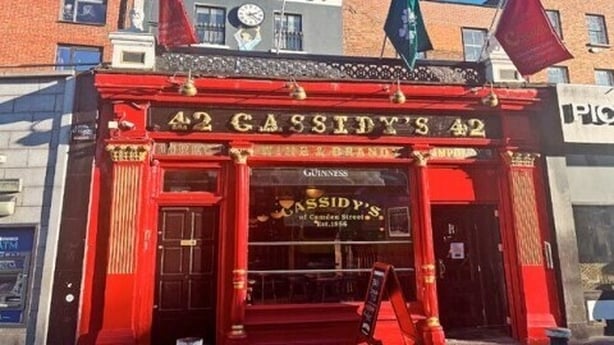A total of 20 pubs were sold in Dublin with a total market value of about €69.6m last year, an increase from 2023 when the same number of sales generated €47.3m.
The new figures from estate agents Lisney show that a total of 21 licensed premises were publicly offered for sale in Dublin last year, a decrease on the 34 offered publicly in 2023.
Publicans remained the dominant purchaser class, accounting for 55% of volume and 37% of value, while developer activity also increased to 20% of volume and 19% of value, Lisney said.
Despite accounting for only three transactions last year, private equity investments represented 39% of the total market value.
The main factors driving supply were retirement and business realignment, with 80% of the sales completed publicly being retirement driven, Lisney said.
Lisney said appetite remained for well-located Dublin city premises as illustrated by the sales of Bar Eile cornering Baggot Street and Mespil Road, Foley's on Merrion Row, Cassidy's on Westmoreland Street, Cassidy's on Camden Street, McSorley's in Ranelagh, and Devitt's on Camden Street.

Of these six sales five transacted off market.
By the end of 2024, Lisney said there were a further nine sales agreed which it said bodes well for early 2025 activity.
Lisney said the provincial licensed premises market experienced a surge in activity, highlighted by several high-profile sales, particularly within the well-established provincial cities.
The market saw a notable shift with the JD Wetherspoon group's sale of four premises in Cork, Galway, Waterford, and Carlow.
But appetite outside of populated cities and large towns remained subdued, with little purchaser demand. Lisney said that closures of non-viable businesses within sparsely populated rural areas continued, and this sector of the market struggled persistently.
Meanwhile, licence values remained stable during 2024, mirroring the values achieved in 2023 at an average of €50,000 to €55,000 per licence.
Lisney said that purchaser appetite was driven by the off licence sector of the market, mainly for the creation of new retailing concerns such as supermarkets and convenience retail outlets.
Demand from forecourt retailing remained at almost zero for the second year in a row, which Lisney said perhaps indicates that operators within this sector had achieved their target of licensing their existing identified stations over the past number of years.
Lisney said it anticipates that future supply of licenses will mostly likely be from businesses that have become unviable or that are located within lesser populated locations.
Typically, the delivery of licences from such sources ultimately results in a repurposing of the property for other uses.
Challenges faced by the license premises sector last year included staffing, rising utility costs, VAT on food sales, group debt warehousing and the availability of bank finance, Lisney's report states.
The 6.2% increase in the national minimum wage to €13.50 in January 2025, along with the introduction of additional labour-related measures such as statutory sick pay, increased public holidays, pension auto-enrolment and PRSI increases, has further contributed to the financial pressures faced by operators, it added.
Lisney said that while many licensed premises that enjoyed viable business models with reasonable future trading prospects continued to trade successfully, there were some unavoidable casualties, mainly stemming from the ending of the debt warehousing scheme in May 2024.
Businesses that had not engaged with Revenue to clear their legacy debt or to agree PPAs (phased payment agreements) by May 1, 2024 were in a number of cases unable to trade out of these difficulties.
Of the properties brought for sale publicly in 2024, six were directly attributable to the challenges stemming from the debt warehousing scheme's conclusion, Lisney noted.
The Licensed and Leisure Team at Lisney said that the outlook for 2025 is strong.
"We predict continued demand for city centre locations, though a softening of profitability is expected for certain businesses and trading locations. This is due to rising staff costs and increases in product prices that cannot be fully passed onto consumers," they said.
"While most businesses will remain viable, operators are likely to see lower returns in 2025, which may influence decisions to sell versus hold. As a result, we anticipate a decline in demand for some suburban food-driven businesses that have had to absorb cost pressures," the team said.
"The trend of off-market sales is expected to persist into 2025, particularly for high-value city centre units. These sales cater to a limited but active, well-funded market, making private transactions the preference for many publicans," they added.

